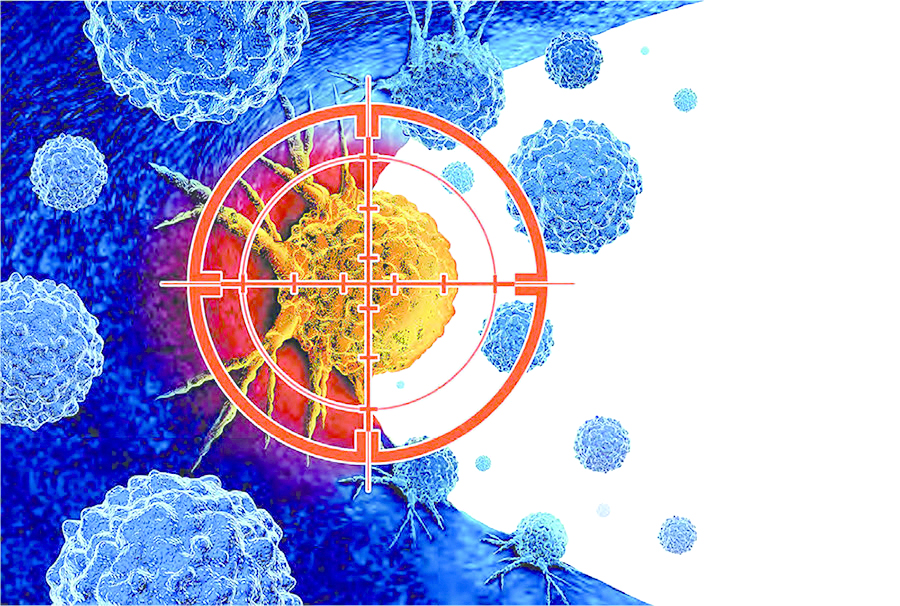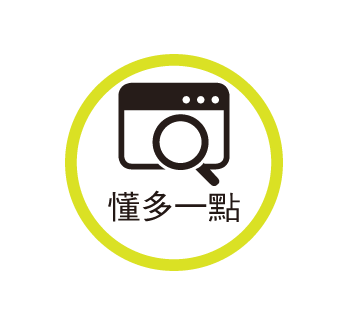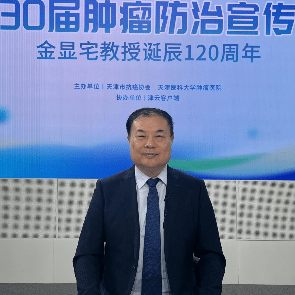[Perspectives of Traditional Chinese and Western Medicine]Herbal medicines check and balance each other and cooperate with traditional Chinese medicine to intervene in anti-cancer as early as possible
[ad_1]
Text◆ Su Ziqian (Honorary Clinical Assistant Professor, Department of Clinical Oncology, University of Hong Kong, Traditional Chinese Medicine Physician)
During daily medical consultations, many patients will ask, can Chinese medicine achieve the anti-cancer effect?
This is a complex issue. Traditional Chinese medicine is indeed effective in treating cancer, but which type of patient and at which stage is most suitable for traditional Chinese medicine to fight cancer, or how to cooperate with the ever-changing anti-cancer Western medicine and radiotherapy (referred to as electrotherapy), are the issues that should be paid most attention to. This is It is also the key point of combining traditional Chinese and Western medicine to treat cancer.
(Hong Kong News) Many Chinese medicines do have anti-cancer effects, at least as found in cell laboratory or animal model experiments. In recent decades, studies have found that many traditional Chinese medicines have a certain degree of cytotoxicity on cancer cells. The principle is somewhat similar to the effect of chemotherapy on cancer cells.
However, traditional Chinese medicine is not a purified medicine, and the cytotoxicity of a single herb is far inferior to that of chemotherapy drugs. Therefore, the side effects of traditional Chinese medicine are relatively mild. In addition, traditional Chinese medicine generally uses compound formulas to treat cancer. Different herbs in the prescriptions work together to enhance the efficacy and reduce toxicity.
Heat-clearing and detoxifying drugs should not be used alone
Many people are familiar with traditional Chinese medicines that have certain anti-cancer effects. For example, the most mentioned Hedyotis diffusa is originally used to clear away heat and detoxify, and can deal with inflammation of the urethra and bladder. Later, the Chinese medicine community found that it has certain effects on lung cancer and head and neck cancer.
In fact, many anti-cancer traditional Chinese medicines are very cold and cooling medicines that clear away heat and detoxify. Therefore, patients with weak constitution or weak spleen and stomach cannot use one kind of traditional Chinese medicine alone. There must be checks and balances in the prescription. In addition to anti-cancer traditional Chinese medicines that clear away heat and detoxify, traditional Chinese medicine also uses some poisons that use poison to fight poison, such as toad venom, Huang Yao Zi, centipede, etc.
Since these drugs are somewhat toxic, the dosage must be used with great caution. There have been reports in the past that patients have experienced severe liver toxicity after taking these drugs by themselves. Therefore, patients taking any Chinese medicine must first consult a registered Chinese medicine practitioner for safety reasons.
Priority and orderly matching of drugs
In fact, some Western medicine chemotherapy drugs are also extracted from herbal medicines. For example, the paclitaxel-based chemotherapy drugs commonly used for breast and prostate cancer were originally extracted from plants similar to the traditional Chinese medicine yew; while the traditional Chinese medicine camptotheca bark is homologous to the chemotherapy drug camptothecin (irinotecan), which is commonly used for colorectal cancer.
It can be seen that Chinese medicine also has a similar effect to chemotherapy, but the active ingredients of herbal medicines are relatively low when used directly, and Chinese medicine prescriptions use a variety of herbal medicines together. This concept is a bit like the “metronomic chemotherapy” proposed by Western oncology. ), that is, using continuous and low-dose chemotherapy to fight cancer, it can fight tumor blood vessel proliferation and activate immunity to keep tumors in a dormant state.
On the other hand, traditional Chinese medicine prescriptions focus on the monarch, his ministers, and his envoys, and the medicines are ordered in order and matched with each other. Traditional Chinese medicine treats people as a whole. When taking medicine, although some medicines directly target tumors, there are also a large number of medicines that regulate the patient’s internal organs, yin and yang, qi and blood status. There are so-called medicines that attack evil spirits, and there are also medicines that strengthen the body. As for how much medicine is used to attack cancer and how much medicine is used to strengthen the body and strengthen the body, Chinese medicine practitioners will decide according to the patient’s physical condition.
Traditional Chinese Medicine focuses on regulating the body for cancer patients
Which type of patient is most suitable for anti-cancer treatment with traditional Chinese medicine?
The first category is patients in the maintenance period, such as after undergoing surgery and chemotherapy for colorectal cancer, or after various Western medical treatments such as breast cancer surgery have been completed (or when only hormonal treatment is given). Completing surgery and chemotherapy does not mean completely eliminating every cancer cell. This is the time to use Chinese medicine to regulate the body.
Traditional Chinese medicine believes that when a person suffers from cancer, the cancer cells are the seeds, and the patient’s physical condition is the soil. If the soil is not suitable, the seeds cannot germinate and grow. Therefore, Chinese medicine focuses on regulating the body of cancer patients, changing the body’s carcinogenic soil, and also adding a certain degree of anti-cancer drugs to further inhibit cancer cells and reduce recurrence.
Depending on the condition, Chinese medicine generally recommends taking Chinese medicine for half a year to two years.
Tumor spread is discovered and treated with traditional Chinese medicine
The second category is cancer patients who are ineffective or intolerant to Western medicine treatment. It is also quite common in clinical practice. Western medicine generally recommends that such patients receive palliative care or supportive care. In Chinese areas including Hong Kong, Most of these patients will seek treatment with traditional Chinese medicine.
Many cases in the past have proven that Chinese medicine can help them prolong their lives or reduce their discomfort. The State Administration of Traditional Chinese Medicine also has clinical guidelines for this type of patients.
But in reality, when these patients seek treatment with traditional Chinese medicine, most of them are already terminally ill, and many are malnourished or even unable to eat. Cancer cells spread to a large tumor volume in the body. When the number and volume of tumors are too large and the growth rate is fast, since Chinese medicine needs to be absorbed and digested through the intestines and stomach and takes time to work, interventional treatment with Chinese medicine is used at this time. I am afraid that it is It’s too late. Therefore, it is best to consider the collaboration of traditional Chinese and Western medicine earlier and use traditional Chinese medicine treatment as soon as possible when the tumor is found to have spread.
Traditional Chinese medicine focuses on treating illnesses before they become ill. One of the concepts of treating illnesses before they become ill is to start treatment when the condition is mild, rather than turning the tide at the worst possible time.


Whether to use traditional Chinese medicine aloneVaries from person to person
More patients ask, can they be treated solely with Chinese medicine instead of Western medicine?
Recently, a prostate cancer patient who returned to Hong Kong from the UK to visit relatives sought treatment. He was diagnosed with prostate cancer two years ago and underwent prostatectomy at a London hospital. After the surgery, the prostate specific antigen (PSA) has been at the lowest level <0.01 (the normal value is no more than 4ng/ml); however, one year later, the PSA slowly increased to 0.1 now, and there are no symptoms in the body. He sought medical treatment and hoped to use it. Medical treatment.
In fact, his situation was a biochemical recurrence after surgery, that is, cancer cells remained or recurred in the body. With today’s precise electrotherapy, there is a nearly 70% chance that it can be completely cured, and the side effects are mild. Even if there is some discomfort, it can be relieved with traditional Chinese medicine. In this case, it is not recommended to use traditional Chinese medicine alone for treatment.
It is not advisable to condition your body before chemotherapy
When there is strong scientific evidence that a disease can be cured, doctors from any sector cannot reject evidence-based medicine data. The above cases illustrate that electrotherapy as the main treatment and Chinese medicine as a complementary treatment are better for patients; they also illustrate that different patients have different effects when using the combination of Chinese and Western medicine.
On the contrary, some patients are not suitable for western medicine treatment, but traditional Chinese medicine is more suitable for anti-cancer. A patient who received electrotherapy for nasopharyngeal cancer many years ago was later found to have head and neck squamous cell carcinoma with lymph node metastasis in the neck and mediastinum.
Although the number of spreading lymph nodes is not large, the patient is too old and is not suitable for chemotherapy or electrotherapy. In the end, he decided to use traditional Chinese medicine to fight cancer and regulate his body. After a year, a computer scan showed that the cancer cells had shrunk slightly and his condition was stable.
[ad_2]
Source link

![[Love Wants Sexual Happiness Series 358]Find the culprit and overcome psychogenic erectile dysfunction. Don’t let pressure affect your sexual happiness.](https://chinathenews.com/wp-content/uploads/2024/04/171111-780x420.jpg)

![[Wanqingyi Care]My health, my rights, customized medical methods in the last stage of life](https://chinathenews.com/wp-content/uploads/2024/04/ZZ1-100-780x420.jpg)
![[Kidney Transplantation Special Topic]The survival rate of transplanted kidneys is high without dialysis treatment three times a week](https://chinathenews.com/wp-content/uploads/2024/04/1311-780x420.jpg)



